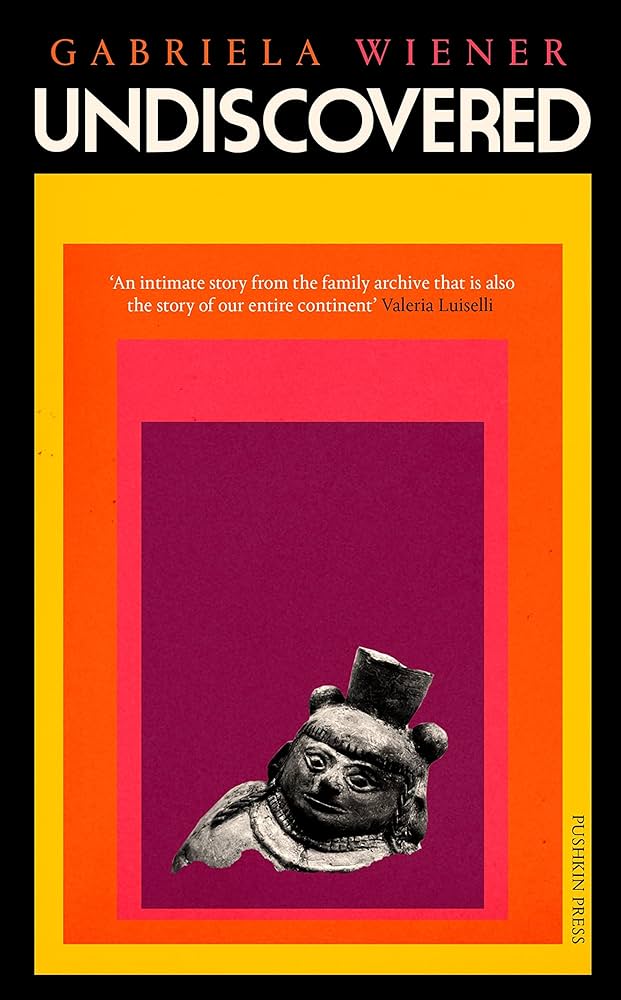The Lima-born author and journalist writes about her ancestors in a memoir that is as much about desire as it is the bonds that form and make families

Recent postcolonial debates tend to focus on the distant past, in the tracing of the origins of wrongs that, it is often argued, still drive and underwrite the (mostly racial) injustices and inequalities of today. The events of the eighteenth and nineteenth centuries – of slavery, colonial plunder, economic domination and the emergence of racist ideology in the West – loom large in these accounts. One of the consequences of the retracing and rewriting of this long-range history is that lineages, ancestries and descendances have acquired their own charged cultural politics.
It is this preoccupation with the moral stain of your forbears that also sets the scene of the Lima-born author and journalist Gabriela Wiener’s partly autofictional memoir. While it is ostensibly about Wiener returning to the story of her feted ancestor, the nineteenth-century explorer Charles, it’s triggered by the death of her father, a lifelong Peruvian leftist. The significance of racial division and mixing, of parentage and bloodlines, in societies divided according to racial difference is what forms the book’s centre of gravity: ‘My father was the only Wiener who didn’t marry a white mestiza,’ Wiener writes. ‘My mom married a white mestizo. But my dad married a chola.’ And Undiscovered is as much about sex and desire as it is the bonds of families. Bisexual, living in a polyamorous threesome with Roci, her ‘white’ Spanish girlfriend, and her ‘cholo’ husband and their daughter in Madrid, Wiener’s life is a living experiment in transcending the racial and social legacies of the past.
Wiener’s struggle throughout is with a desire for rootedness and a terror of inauthenticity, of being an ‘impostor’. Charles was
the huaquero, an adventurer who was less an archaeologist than a ‘grave robber’, the self- promoting, self-aggrandising author of Peru and Bolivia (1880). Wiener’s confrontation with her past, though, is riven with other impostures: there is her father’s peculiar philandering, main- taining a lifelong affair with another woman (even having a daughter with her), creating and maintaining two separate lives. But at heart of it is Charles’s own repudiation of his Jewish roots. Born in Vienna as Karl, he later moved with his family to France at sixteen, where he did everything to evade the era’s pervasive antisemitism, changing his name and converting to Catholicism and finally achieving the ultimate accolade (France’s Légion d’Honneur); in the book’s more fictional moments, Wiener imagines Charles making his speech at the Exposition Universelle of 1878, taking a breath, exhaling and releasing ‘an ancient tension, a rage beyond all comprehension, the pain of not being, being’.
A dialectic caused by the guilt of roots and the fear of rootlessness starts to prey on Wiener, who, for all her disgust at what Charles represents, inexplicably begins to panic when she discovers that, due to an ambiguous Peruvian birth certificate, the family line from Charles to her may be in question. It’s in these contradictions, where the personalisation of the political becomes acute, that the book is most moving. A self-destructive affair while in Lima destabilises the apparent harmony of her family back home; a crisis that leads her to ‘Decolonize My Desire’ sessions with other women of colour, who discuss ‘white people overcome with white guilt who only go near our bodies to fetishize us’. Roci, she decides, ‘wants me because I help her wash some part of the stain of colonialism from her DNA’.
Wiener’s emotional resolution is found, eventually, through Roci’s unexpected pregnancy; Weiner becoming the other mother to Roci’s son seals their unconventional family unit, in which the ties of blood, patrilineage and even maternal claim are dissolved, or reinvented. Without quite resolving it, Undiscovered captures much of the trouble that comes from decolonisation’s demand that individuals take responsibility for their past, and the strain this poses on one’s sense of identity, especially when one embodies, in one’s genes, both oppressor and oppressed. Though Wiener might not agree, it’s the oppressive burden of a politics that casts people – by the accident of their history – as living representatives of the injustices perpetrated by the dead.
Undiscovered by Gabriela Wiener, translated by Julia Sanches. Pushkin Press, £14.99 (hardcover)